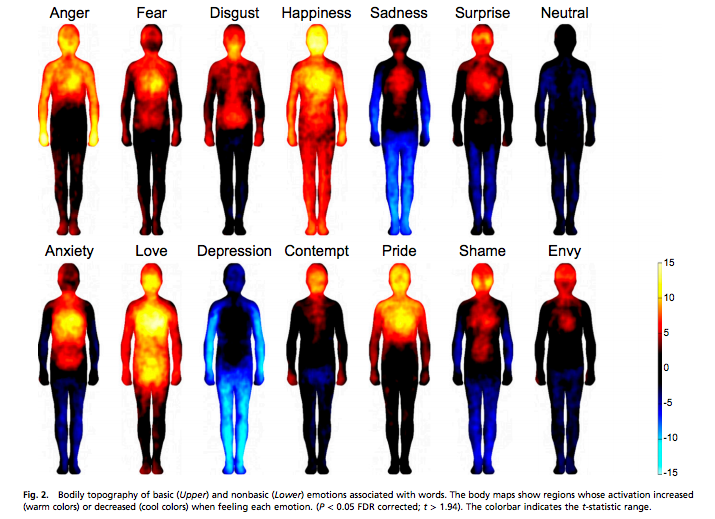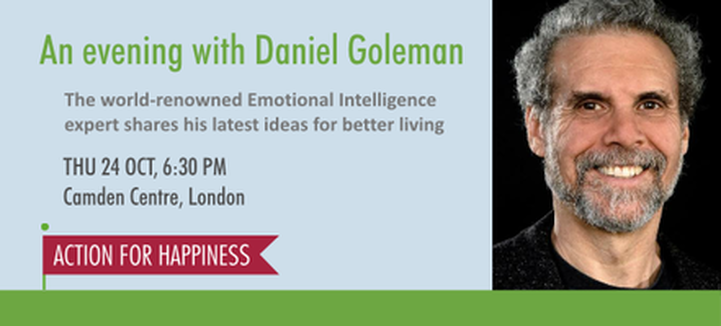'Bodily Maps of Emotions', Psychological and Cognitive Sciences (pnas.org)
Data: http://www.pnas.org/content/suppl/2013/12/26/1321664111.DCSupplemental/pnas.201321664SI.pdf
What I like about this study is this image of the self-reported sensations that participants experienced in response to the stimuli. Also, they looked at so called 'non-basic' emotions, such as anxiety, love, pride and shame. Love looks like the warmest place to be! And just look at the burning cheek areas of shame and it's deactivated legs, also shared strongly in sadness, depression and anxiety. Such familiar feelings for all of us at some level.
There were 5 experimental conditions and 701 participants were asked to colour two silhouettes of human bodies depending on increases and decreases in their internal bodily activation response to emotional words, stories, movies, or facial expressions.
The researchers state that "Different emotions were consistently associated with statistically separable bodily sensation maps across experiments." The body mapping results showed concordance across participants from Western Europe and East Asia, suggesting cultural universality of these very human emotional experiences - no surprise there!
All the emotions triggered sensations in the head, which suggests physiological changes such as activation of facial musculature, skin temperature and tear secretion, as well as the changes experienced in the mind. There also appears to be an upward energy to approach-oriented emotions (ie. anger, happiness), and a decrease in activation in the lower limbs is seen in the avoidance-oriented ones (ie. depression, shame).
It's interesting to speculate how we may perceive emotions in those with whom we are interacting, through facial expression, limb activation, temperature for instance, and how we tend to respond. In their discussion, the researchers wondered whether emotional perception and emotional contagion (when we inadvertently pick up another's feeling state as if it were our own) may involve automatic activation of the body's sensory response to emotion, which is then evaluated cognitively. They considered the idea that sensations may underlie our conscious emotional experience, looking for an answer to the chicken and egg question about whether the sensations cause the emotion or vice versa, and was unable to draw any firm conclusions.
However, it's clear that somatic sensation and embodied experience are both critical in emotional processing, and this points to the effectiveness of body-centred interventions for regulating affect.


 RSS Feed
RSS Feed